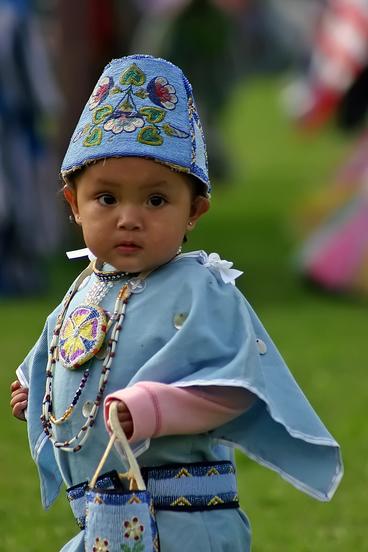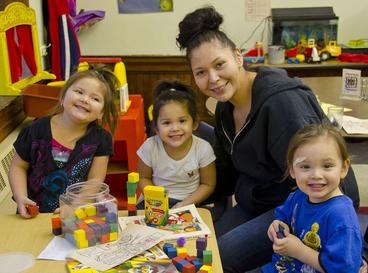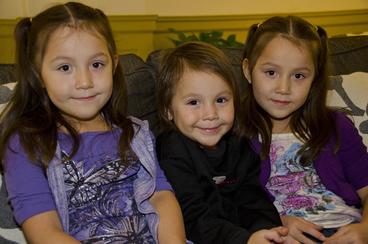
The TTCP was established based on the understanding that training the public child welfare workforce, including child welfare workers, court personnel, attorneys and others involved in the child welfare system, is critical to improving outcomes for American Indian children and families.
We offer new worker foundation training on the Indian Child Welfare Act and Minnesota Indian Family Preservation Act through the Minnesota Child Welfare Training Academy (MNCWTA), a collaboration between the University of Minnesota Twin Cities, University of Minnesota Duluth, and the Minnesota Department of Human Services. This training is open to ongoing child welfare workers and supervisors. With a focus on history, culture and understanding and applying ICWA and MIFPA laws, the training aims to increase worker skills and competencies and improve practice with American Indian families.
We offer an advanced ICWA training to current and experienced child welfare workers, supervisors, and others involved in child welfare. This training is the second part of an ICWA competency training.
Courses include:

ICWA Foundation Training - Understanding and Implementing the Indian Child Welfare Act and the Minnesota Indian Family Preservation Act: Best Practice for Working with American Indian Families and Tribes
This two-day foundational training for child welfare workers covers entry-level topics child welfare professionals need in order to understand federal and state laws governing working with American Indian families. Along with providing information about the laws themselves, this training focuses on the why of the ICWA and MIFPA, and how social workers can have a real impact in improving the lives of families affected by these laws. Topics include historical and cultural factors, the impact of historical trauma, resilience, and specific requirements of the ICWA and MIFPA.
Advanced ICWA Training
This two-day advanced training for child welfare workers is designed to be taken after foundational ICWA/MIFPA. Foundational ICWA/MIFPA is included in the core foundation courses for new workers, and is offered monthly by the TTCP for ongoing workers to enroll at any time. Advanced ICWA and MIFPA expands upon key concepts learners obtained in the foundational class, and allows participants to engage in implementation of best practices.
During this training, participants gain a deeper understanding of risk vs. safety, applying active efforts to challenging situations, visitation and reunification. Additionally, cultural concepts are expanded for workers to enhance knowledge and understanding of Tribal family systems and approaches to child welfare. Throughout the course there are situational scenarios and application of skill interactional opportunities.
Our exceptional community trainers work with participants to enhance worker comfort level in how to accurately apply different provisions of ICWA and MIFPA. This training is intended to enhance the skill level of ongoing workers and supervisors in the field in their work with Indigenous families, and intends to lead to better outcomes.

Bridging our Understanding: American Indian Family Preservation
In conjunction with the 11 tribes in Minnesota, Bridging Our Understanding: American Indian Family Preservation was developed as an advanced level training for child welfare workers and supervisors who work with American Indian families. Child welfare workers learn about the relational worldview and cultural practices of American Indian Tribes in Minnesota, and are given the opportunity to reconcile county practice methods with those of the tribes.

Tribal Nation Child Welfare and Tribal Agency Onboarding Training
In partnership with the Center, the TTCP offers training to tribal workers through the worldview and best practices of tribal child welfare, family and community wellness. The TTCP recognizes that Tribal systems are unique and require indigenous expertise in understanding tribal cultures, beliefs, values, practices, protocols, codes, and court systems. TTCP Tribal Nation training is tailored for tribal systems.
The TTCP has worked with tribes to develop and implement training that is culturally relevant, and fits the training needs of tribes. Most of the training developed applies universally across tribal systems, although specific training content has been tailored for individual tribal nations, nations within a specific geographic region, or state. Understanding and enforcing ICWA, Indigenous child welfare practice, and QEW training are examples of universal training. State codified versions of ICWA is an example of a modified training. Decolonizing practice to apply a tribal practice model is an individualized training tailored to a specific tribal nation.
Technical Assistance
For more information on technical assistance for tribal nations, please contact Jeri Jasken, TTCP Director, at [email protected]